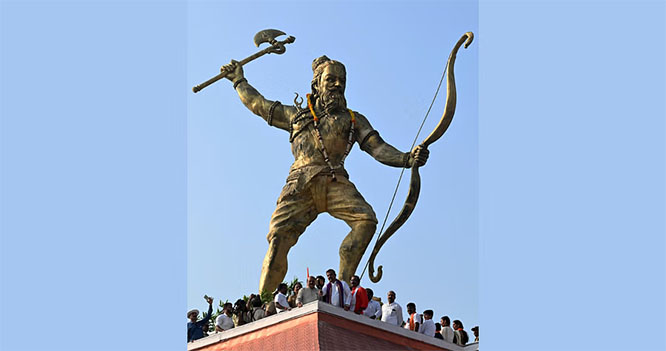
Yerevan, Oct, 10: Azerbaijan and Armenia have accused each other of swiftly violating the terms of a ceasefire in the disputed Nagorno-Karabakh region, raising questions about how meaningful the truce, brokered by Russia, would turn out to be.
The ceasefire, clinched after marathon talks in Moscow advocated by President Vladimir Putin, was meant to halt fighting to allow ethnic Armenian forces in Nagorno-Karabakh and Azeri forces to swap prisoners and war dead.
But within minutes of the truce taking effect from midday on Saturday (08:00 GMT), both sides accused each other of breaking it.
The Armenian defence ministry accused Azerbaijan of shelling a settlement inside Armenia, while ethnic Armenian forces in Nagorno-Karabakh alleged that Azeri forces had launched a new offensive five minutes after the truce took hold.
Azerbaijan said enemy forces in the disputed region were shelling Azeri territory. Both sides have consistently denied each others’ assertions about military activity.
Under the international law, Nagorno-Karabakh is recognised as part of Azerbaijan.
But ethnic Armenians, who make up the vast majority of the population, reject the Azerbaijani rule and have been running their own affairs with Armenia’s support since a devastating war in the 1990s following the collapse of the Soviet Union.
At least 30,000 people were killed and hundreds of thousands were forced from their homes before an an internationally-brokered ceasefire was agreed in 1994.
However, in a statement which suggested the ceasefire was not completely dead, Azeri President Ilham Aliyev said the warring parties were now engaged in trying to find a political settlement.
The Moscow ceasefire talks were the first diplomatic contact between the two since fighting over the mountainous region erupted on September 27, which has killed at least 300 people and is the most serious in the territory since clashes in 2016 left dozens dead.
Russian Foreign Minister Sergei Lavrov, who helped mediate, said in a statement in the early hours of Saturday after more than 10 hours of negotiations that the ceasefire had been agreed on humanitarian grounds.
The International Committee of the Red Cross would help make the truce work, he said.
“The specific terms of the ceasefire still need to be agreed,” said Lavrov, who said Armenia and Azerbaijan had also agreed to enter into what he called substantive peace talks.
Those talks would be held under the auspices of the Organization for Security and Co-operation in Europe’s (OSCE) Minsk Group, he said.
The renewed fighting in the decades-old conflict has raised fears of a wider war drawing in Turkey, a close ally of Azerbaijan, and Russia, which has a defence pact with Armenia.
Paul Stronski, a senior fellow in the Russia and Eurasia programme at the Carnegie Endowment for International Peace, told media that Nagorno-Karabakh was a “complex issue” for Russia, noting that it was already at loggerheads with Turkey in Syria and Libya.
“There’s a real risk this could become a proxy war,” he said.








Comments
Add new comment